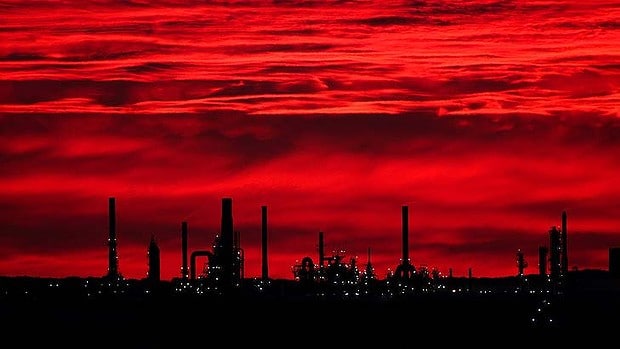Australia’s peak motoring body fears Caltex’s decision to shut its Kurnell site has left the country exposed to fuel supply risks and price volatility.
Caltex will shed more than 330 jobs as the Kurnell site in Sydney is transformed into a simple fuel import facility over the next two years.
The closure follows a recent decision by Shell to shut its refinery at Clyde. It will leave Sydney without an oil refinery.
Serious questions are now being asked about the security of Australian fuel supplies and the potential flow-on effects at the bowser.
Australian Automobile Association executive director Andrew McKellar says the closure could hit consumers hard.
“We need to ensure that we have adequate reserves in place but also that we’re encouraging and developing alternative sources of supply,” he said.
“We need to ensure that there is adequate account taken of the impact that that sort of outcome can have on consumers and on the Australian economy.”
Caltex currently supplies around 30 per cent of all transport fuels in Australia.
To ensure an uninterrupted flow of petrol into Australia, Caltex has teamed up with Chevron. Under the agreement, Chevron will procure and supply to Caltex imported product from Singapore at market-based prices.
Fat Prophets Resources analyst David Lennox says that is cold comfort for motorists now even more reliant on imported products to fuel their engines.
“If there’s a blockage in the supply chain somewhere outside of Australian shores then we would be impacted no matter what happens,” he said.
“Australia is not self-sufficient in crude supply, and while that is the case then we will always be susceptible to those types of blockages.”
The NRMA agrees, with director of motoring and services Graham Blight saying Australia has not done enough to invest in alternative fuel sources like biofuels.
“The real issue is about fuel security in Australia,” he said.
“We are not meeting evidently our international obligations on fuel reserves in Australia, so we’re in a very vulnerable position and unfortunately there’s 52 other countries in the world who are a block ahead of us.”

Colin Long, head of the Service Station Association, said the mega refineries in Singapore and India would easily be able to meet Australia’s fuel supply needs.
Mr Long says that in the short term motorists will not be affected.
“Like Shell they will be bringing in the refined product all ready to go into Australia through their tanks and out to the distribution of service stations,” he said.
“So the public and the service stations will notice no difference, so there’s no actual threat as to supply in that scenario.”
Caltex says its decision to close the Kurnell refinery is based purely on economics.
“I’ll just point out to you that last year we lost $208 million in our refining operations. That’s a situation that cannot continue,” said chief executive officer Julian Segal.
“We believe this decision puts Caltex on a much more sustainable path going forward. We will continue to invest in our supply chain and marketing operations to further develop our proven growth platform.
“Concurrently we will stem the losses at our refining operations by converting Kurnell to a major import terminal.”
The terminal will take in and distribute fuel to the Sydney metropolitan basin.
That has been the role of the Kurnell refinery for the past 57 years, but Caltex says it was small in scale, producing only 100,000 barrels of petrol a day.
It was competing with new facilities in Asia which pump out more than 1 million barrels a day.
Caltex maintains its refinery at Lytton in Brisbane will continue to operate as normal. It is even getting a modest upgrade.
But with refineries at Kurnell and Clyde gone, it leaves just six refineries remaining in Australia.
The Federal Government has downplayed the impact, saying most of the oil refined at the Kurnell site was imported.
“The independent national energy security assessment established excess refinery capacity in the Asia-Pacific region, and already 80 per cent of the crude oil refined at Kurnell is imported,” said Resources Minister Martin Ferguson.
“There are mature import channels and ample product available to meet our needs and I am confident there will be no problems, difficulties in terms of the supply of fuel to Sydney or any other place in Australia.”
Caltex will now incur significant costs as it closes the Kurnell refinery totalling around $430 million.
It will also pump $250 million into converting and expanding the current import facilities.
The closure of the Kurnell site is expected to be completed in the second half of 2014.
Unions, meanwhile, are calling on the Federal Government to lobby Caltex to prevent the closure.
Australian Workers Union national secretary Paul Howes says both the State and Federal governments have neglected the Kurnell refinery.
“Why aren’t they stepping in here and saying, ‘Chevron, if you want the right to exploit our natural resources in the form of the Gorgon project – a $48 billion natural gas project – then you have the obligation through your 50 per cent share holding of Caltex to ensure that just a little bit of the crude oil is value-added in Australia.”
by Vandas Voice


